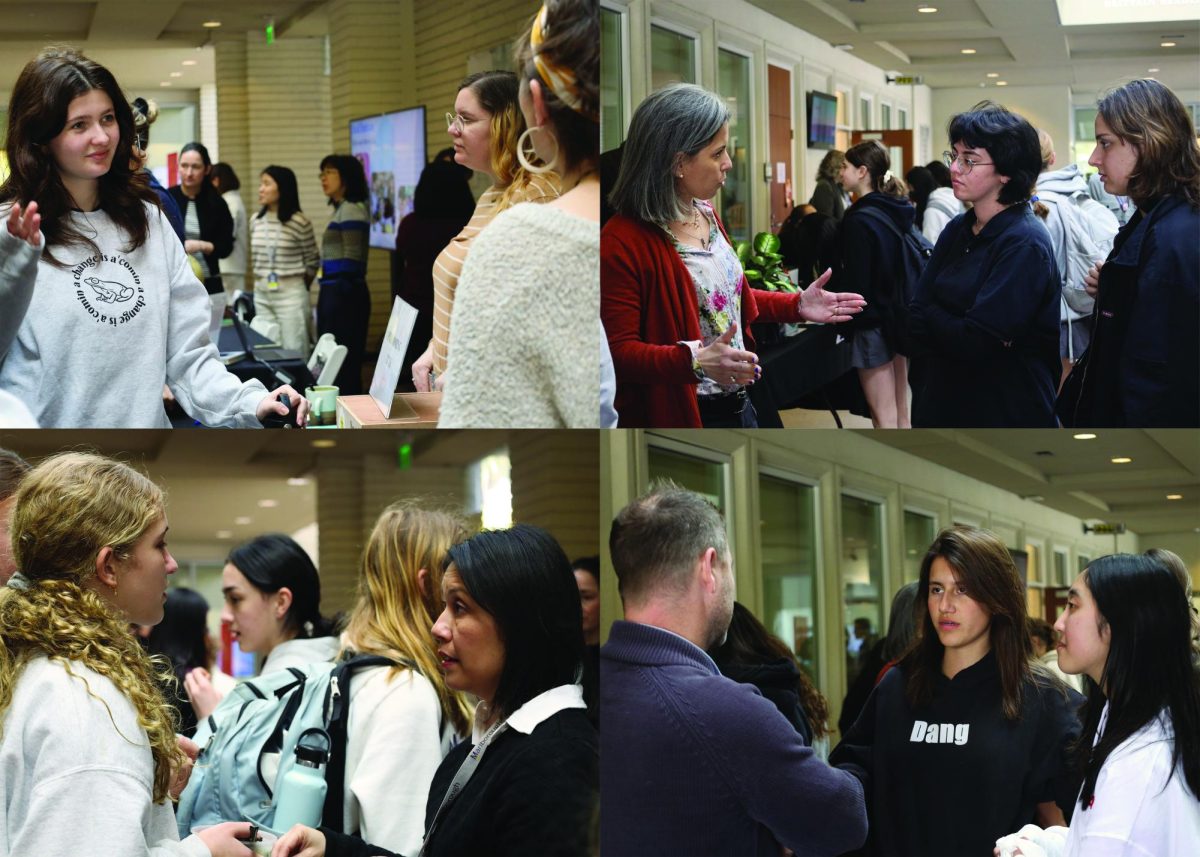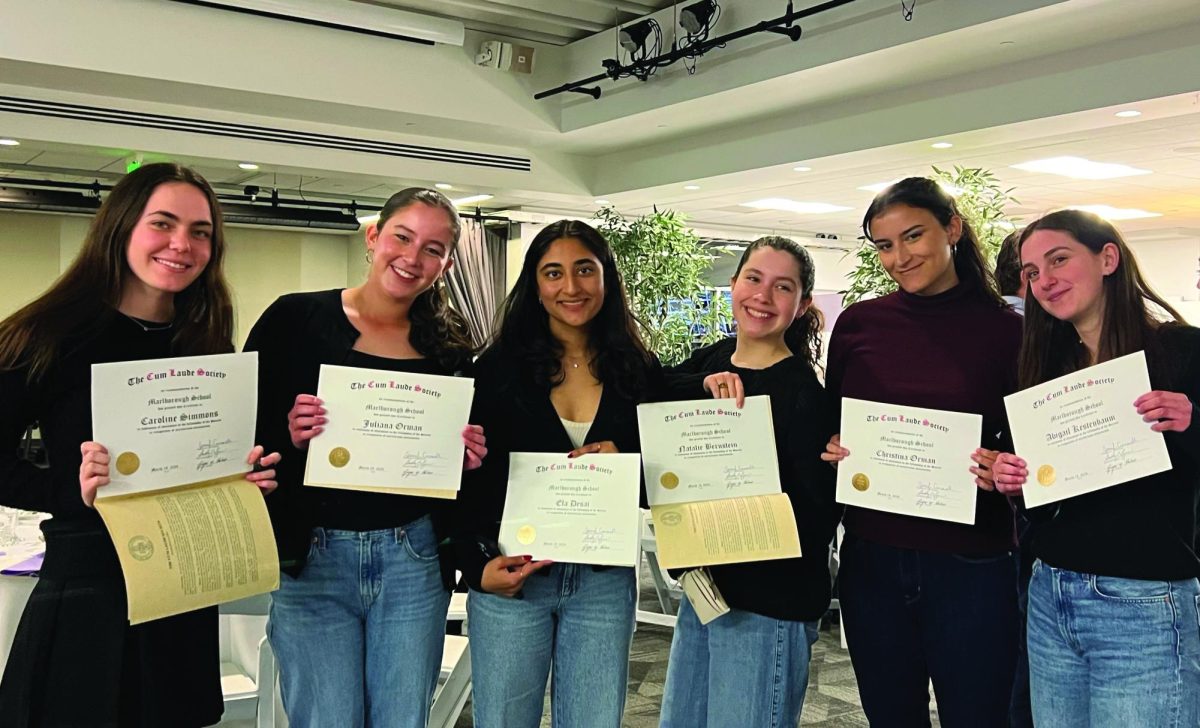 Alissia Rose-Pait brings transgender awareness front and center to the school community.
Alissia Rose-Pait brings transgender awareness front and center to the school community.
Network Administrator Alissia Rose-Pait said she knew she was putting her entire life at risk – her family, her friends and her job – but she had no alternative. For her entire life, she’d been living in the wrong body.
In May, she began the long and complex process of becoming a woman by informing her wife and children, co-workers and friends about her decision. Her physical process couldn’t begin until Rose-Pait left her family, who she said didn’t fully support her desire to change.
“It’s scary. It’s not a choice,” she said.
Transgendered people across the nation are one of the most misunderstood populations, said Drian Juarez, client advocate of the L.A. Gay and Lesbian Center.
“Transitioning is not an easy thing…You are happy that you feel normal and right in your skin, but, at the same time, you can’t walk around the street without people disrespecting you and calling you names,” she said.
“Transgender” is a broad term used to describe anyone whose gender identity or expression differs from the traditional gender role they were assigned at birth, according to the American Psychological Association.
In general, anyone whose identity, appearance, or behavior falls outside of conventional gender norms can be described as transgender.
Rose-Pait said she never identified herself as very masculine when she was a teenager. But growing up in a small town where even homosexuality was never mentioned, the idea of changing gender was hardly a real option.
However, some forty years later, a triggering point came when Rose-Pait’s mother passed away last year. She realized that life is too short to not be true to yourself.
“It was a big turning point realizing that once you’re gone, everything just comes down to a shoebox that somebody puts under their bed,” Rose-Pait said.
She realized she needed to change her gender to match what she felt inside.
“I kept feeling like I hadn’t lived my life; I’ve been living someone else’s life,” she said.
Juarez said every transgender has a unique experience,. For Rose-Pait, she said she felt transitioning was her only option for survival.
“It’s a life or death situation,” she said.
Juarez said that it becomes more challenging to transition later in life.However, especially in diverse places such as Los Angeles, society is becoming more and more accepting or at least aware of transgenders.
“People are coming out sooner and sooner and the experience of transitioning is easier when it comes earlier in life,” said Juarez.
According to Rose-Pait, the Marlborough community is “at least dealing.” However, she said many community members don’t know what to call her or how to act around her.
“There are some staff and students that just aren’t dealing -it’s especially noticeable in students,” she said.
Rose-Pait says that she often feels girls are avoiding her, not out of discrimination, but just because they are uninformed or uncomfortable.
Co-president of the gay-straight Alliance Haley said that students would probably have been more comfortable if they had been given guidelines on how to address Ms. Rose-Pait.
She said that the club has had discussions about gender identity and said that there are transgender students at Marlborough, and “we don’t want to make them feel uncomfortable.”
Rose-Pait said that she isn’t trying to call attention to herself.
“I don’t want to be over-flamboyant, just someone who goes through this life. I’m just like everyone else, just in the wrong body,” she said.
Former Marlborough student Luke transitioned two years ago. Unlike Rose-Pait, Luke represents a younger generation in the transgender community where transitioning is easier because of increased social awareness.
Luke’s family and friends were very supportive of his decision, and he did not worry as much that his change would put him at risk.
Luke left California before junior year to go to boarding school in England. While in England, Luke often dressed in masculine clothes and people commonly mistook him for a man, so he said it was only natural that when he moved back to the United States he would start presenting himself as male.
However, he said that he struggled with his gender identity, often tossing out all his boy clothes or all his girl clothes in rejection or full acceptance of his masculinity.
He said that gender shouldn’t be defined in any other way than how someone views themselves.
“It’s what you say you are, and that’s what it should be,” he said.
Luke said that he is still very connected to the Marlborough community – he has kept up with his feminist upbringing at school and many of his best friends are from Marlborough.
“It’s a woman-power school in the best of ways. It appears that I’ve denied that, but I haven’t at all. Being feminist is still a huge part of who I am,” he said.
Luke identifies more as a feminist than a promoter of transgender rights.
“I’m not a trans-activist. Even though it’s my life, it’s not my whole life,” Luke said.
Luke stresses that for him, being transgender is not about a social agenda, but rather a personal journey.
Luke and his best friends were the first to come out as gay at Marlborough, prompting the founding of Alliance by his peers after he left the school.
When Luke came back for his 10 year Marlborough reunion, all of his classmates said the transition was “absolutely perfect” for him.
Luke came to the reunion because he thought it was important to show people “that kids like me don’t just fall off the map, we don’t just disappear,” he said.
Although Luke has finished his transition, Rose-Pait is just in the beginning stages. Before any permanent physical changes, those who wish to transition must attend regular therapy sessions to ensure they are fully committed to their decision.
After that, they start taking hormones and dress as their gender to slowly adjust to the physical transition, according to the site Transsexual Road Map.
This long transitional stage is another reason society can feel misinformed or confused about transgenders.
“We are in a very binary society – everything seems to be one extreme or another,” Rose-Pait said. “But the reality is there is a whole spectrum in between. You run into a lot more androgeny now.”
To learn more about gender-identity terms, CLICK HERE.
Article by Cassidy, Colleen, and Brianne.













Jill Pait • Jul 22, 2010 at 10:24 pm
It would have been nice to have been interviewed for this article. Alissia wasn’t forced to leave her family, but she did choose to go down a path that I could not travel. She was not rejected by either me or our children. During her transition the majority of her visits with our children were made at my home, so that they could adjust in a safe environment. Once they had adapted to her changes, they didn’t need that support any more. We are divorcing, not because I no longer love my spouse, but because I am not gay. Being gay or straight isn’t a choice, which is why Alissia’s journey was one I could not share. She has also received the support of some extended family members, including my father. It might have made for less drama, but it would have been more balanced reporting if her family had also been interviewed prior to the publication of this article.